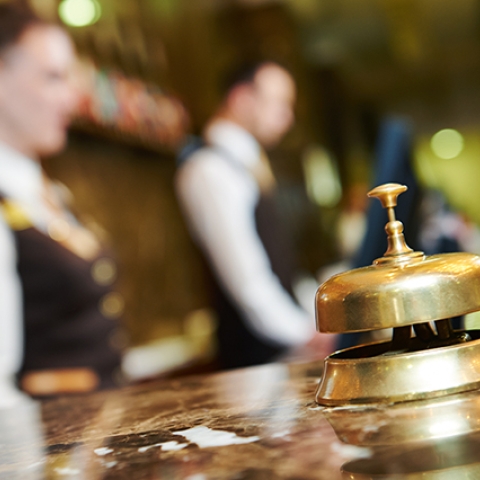Hotel Industry Faces Uneven Recovery This Year, According to New AHLA Report

While the hotel industry will continue its progress toward recovery in 2022, its path will be uneven and potentially volatile, and full recovery is expected to be several years away, according to the American Hotel & Lodging Association (AHLA)’s 2022 State of the Hotel Industry Report.
“Hotels have faced enormous challenges over the past two years, and we are still a long way from full recovery,” said Chip Rogers, president and CEO of AHLA, the sole national association representing all segments of the U.S. lodging industry. “The uncertainty about the Omicron variant suggests just how difficult it will be to predict travel readiness in 2022, adding to the challenges hotels are already facing.”
Rogers added that the slow return of business travel and fewer meetings and events continue to have a significant negative impact on the industry, while the growth of leisure and “bleisure” travel represents a transformative shift that hotels will have to continue evolving alongside in order to successfully meet the needs of these “new” travelers.
The new report, which identifies shifts in consumer and business sentiment, was created in collaboration with AHLA Silver Partner Accenture and is based on data and forecasts from Oxford Economics and AHLA Platinum Partner STR.
Its top findings include:
- Hotel occupancy rates and room revenue are projected to approach 2019 levels in 2022.
- The outlook for ancillary revenue, including food and beverage and meeting space, is less optimistic.
- Hotels lost a collective $111.8 billion in room revenue alone during 2020 and 2021.
- Leisure travelers will continue to drive recovery. In 2019, business travelers made up 52.5% of industry room revenue. In 2022, it is projected to represent just 43.6%.
- Business travel is expected to remain down more than 20% for much of the year, while just 58% of meetings and events are expected to return. The full effects of Omicron are not yet known.
- Changing traveler segments, including the rapid rise of “bleisure” travelers—those who blend business and leisure travel—are impacting how hotels operate. In fact, one study of global business travelers found 89% wanted to add a private holiday to their business trips in the next 12 months.
- In this new environment, technology will be even more critical to a property’s success, according to AHLA Platinum Partner Oracle Hospitality, with hotels investing in technology to meet the needs of both guests and employees today and in the future.
While travel and hospitality brands still face an uncertain marketplace, all these changes also herald a new era of opportunity to drive long-term customer loyalty, according to Liselotte de Maar, managing director–North America travel industry lead for Accenture.
“They should flex with demand and respond to the added complexities and volatility in travel by delivering a ‘travel partner’ mentality to their leisure and business customers,” de Maar said. “Travelers are now not only focused on price and quality of a location, but also on cleanliness and sustainability values and impact, and expect a clearer, more digital service.”
She added that companies will need to continue to digitally transform, reinvent their loyalty model and rethink the employee proposition if they wish to thrive.
Like many industries, hotels have been dealing with a major workforce shortage that could impact recovery, thanks to a pandemic that wiped out 10 years of job growth, according to AHLA officials.
In response, the AHLA Foundation is launching a new national, multi-channel ad campaign to help fill hundreds of thousands of open hotel industry jobs. This multi-year effort, “The Hotel Industry: A Place to Stay,” is designed to educate job seekers about the more than 200 career pathways and many perks that the hospitality industry offers, including competitive wages, benefits, flexible schedules and travel opportunities. Ads will soon run in Columbus, Dallas, Denver, Miami and Phoenix on Facebook, Google and YouTube in both English and Spanish.
To download the AHLA 2022 State of the Hotel Industry report, go here.
Don’t miss any event-related news: Sign up for our weekly e-newsletter HERE and engage with us on Twitter, Facebook, LinkedIn and Instagram!


Add new comment